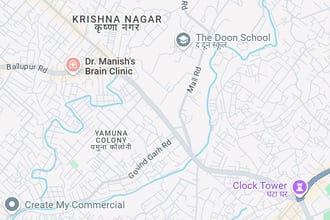Mind Matters: Breaking the Stigma Around Mental Health
By Dr. Manish Roshan Thakur, MBBS, MD (Psychiatry, AIIMS) In today’s fast-paced world, mental health issues are on the rise, affecting millions globally. Despite their prevalence, many still hesitate to seek help due to stigma, misinformation, or fear of being judged. It’s time to change the narrative and prioritize mental well-being just as we do physical health. Understanding Mental Health Mental health is more than just the absence of mental disorders—it encompasses emotional, psychological, and social well-being. It affects how we think, feel, and behave in daily life. Stress, anxiety, depression, and other conditions can impact anyone, regardless of age, gender, or background. The Role of Counseling and Therapy One of the most effective ways to address mental health concerns is through professional counseling and therapy. These approaches provide individuals with the tools and coping mechanisms necessary to navigate their challenges. Some common forms of therapy include: Cognitive Behavioral Therapy (CBT) – Helps individuals recognize negative thought patterns and replace them with healthier behaviors. Psychodynamic Therapy – Explores past experiences and unconscious emotions to understand current issues. Humanistic Therapy – Focuses on self-growth, personal development, and finding meaning in life. Group Therapy – Provides a supportive environment where individuals can share experiences and learn from others. Psychiatric Treatments and Their Importance In some cases, therapy alone may not be enough. Psychiatric treatments, including medication and medical interventions, can play a crucial role in managing conditions such as severe depression, anxiety disorders, schizophrenia, and bipolar disorder. Treatment plans may involve: Medication Management – Prescribed drugs like antidepressants, antipsychotics, and mood stabilizers can help regulate brain chemistry and improve symptoms. Electroconvulsive Therapy (ECT) – Used in severe cases of depression when other treatments fail, ECT helps reset brain activity. Lifestyle Modifications – Exercise, a balanced diet, mindfulness, and relaxation techniques contribute significantly to mental well-being. Breaking the Stigma Society must shift its perception of mental health. Seeking help is not a sign of weakness but rather a step toward self-care and recovery. Educating ourselves and others about mental health issues can create a more compassionate and understanding world. If you or someone you know is struggling with mental health challenges, reach out to a professional. Remember, mental well-being is just as important as physical health—let’s prioritize it together. Your mind matters. Let’s talk, heal, and thrive.
Dr. Manish R. Thakur
4/1/20251 min read
Brain Clinic
Ground Floor, RB Towers, Ballupur Rd, adjacent Hotel Ramada Kishangarh, Mahinder Vihar, Khurbura Mohalla, Dehradun, Uttarakhand. 248001
© Dr. Manish's Brain Clinic 2025. All rights reserved.
At Dr. Manish's Brain Clinic, our mission is to provide compassionate, cutting-edge, and holistic mental healthcare to help individuals achieve emotional well-being and cognitive balance. We are dedicated to diagnosing, treating, and supporting individuals facing neurological and psychiatric challenges, including depression, anxiety, mood disorders, stress, trauma, and more.


